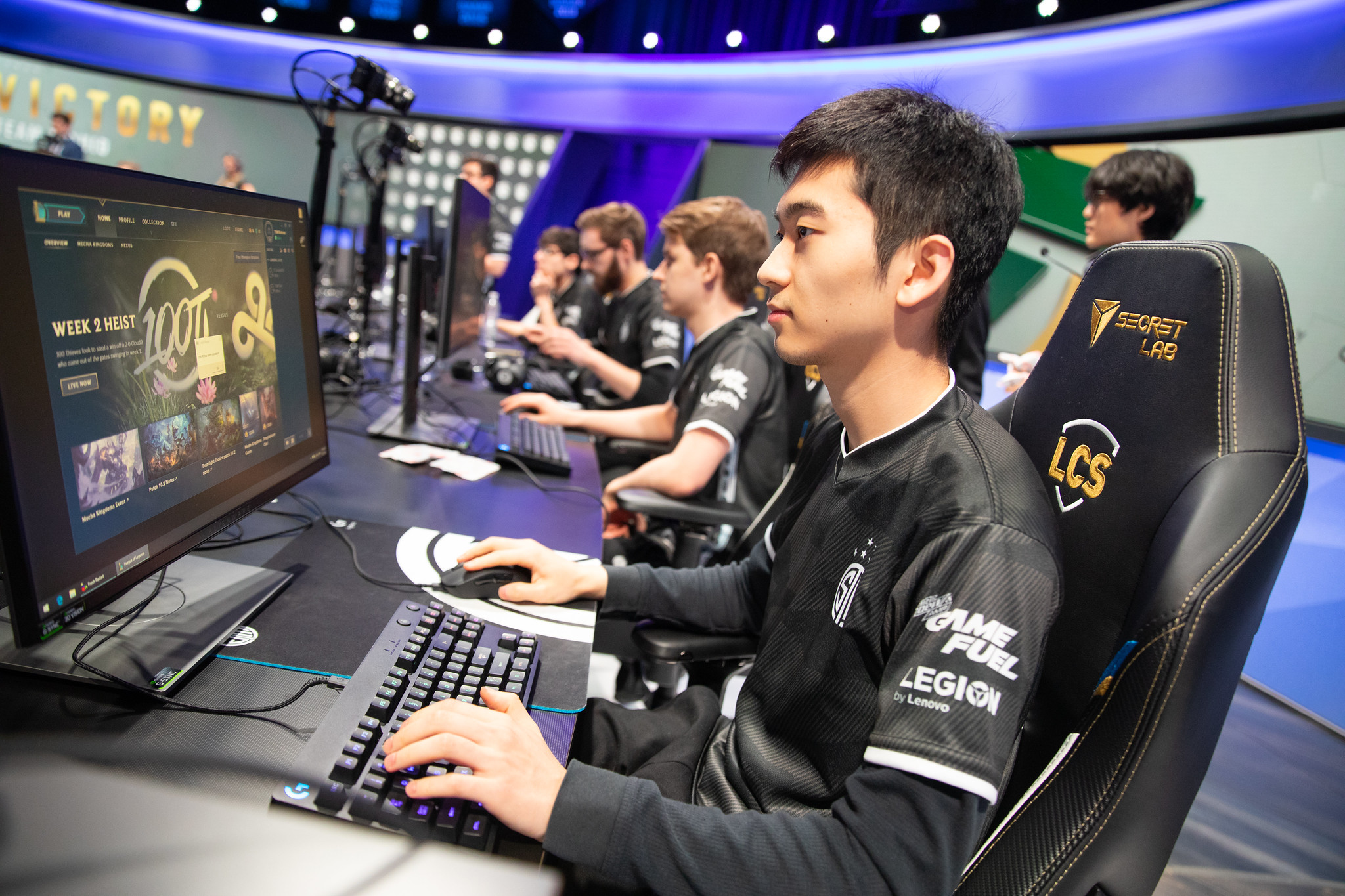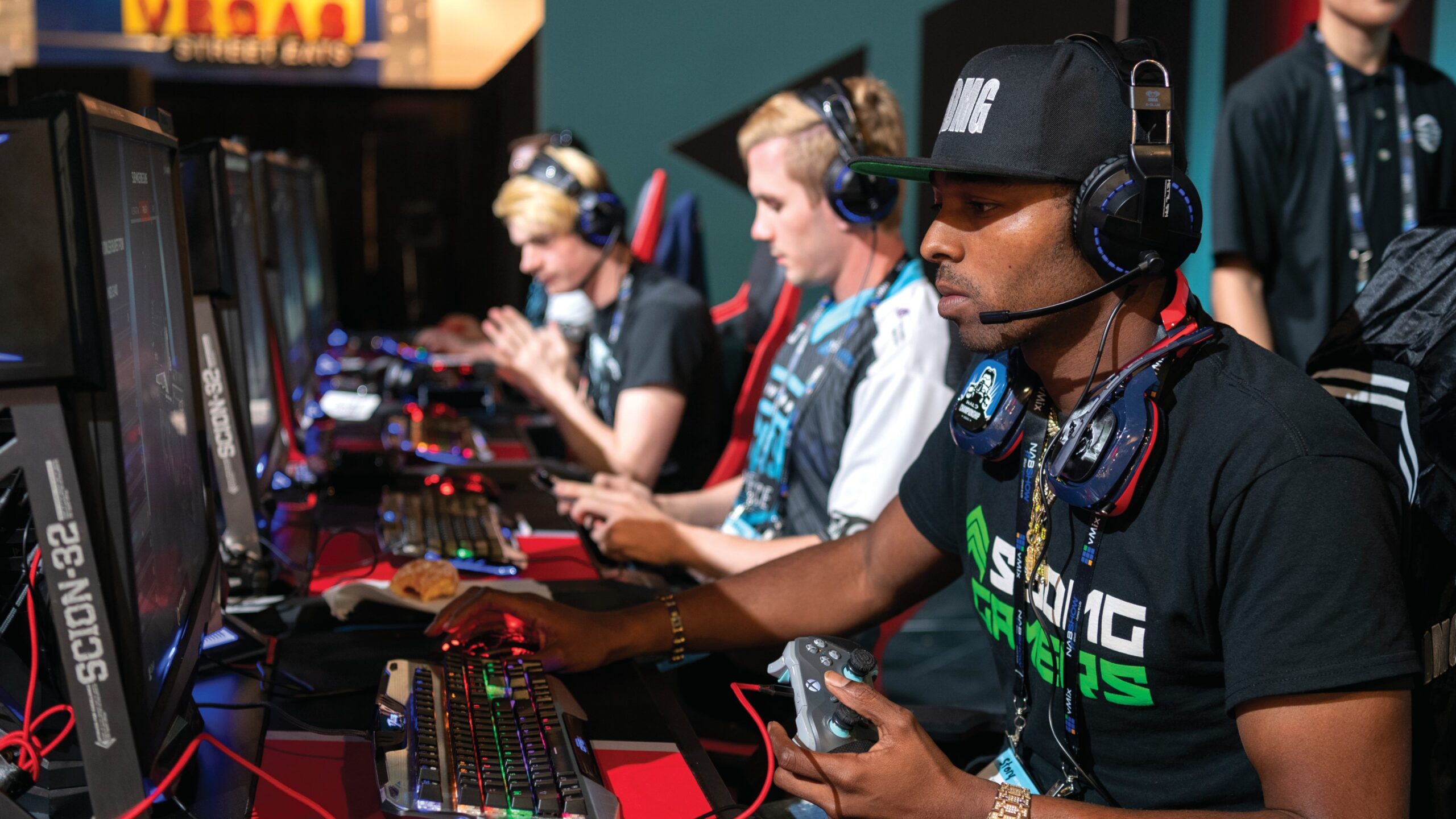Esports, short for electronic sports, is the thrilling world where video games meet competitive sports. Imagine a stadium packed with screaming fans, not for soccer or basketball, but for players battling it out on screens, wielding keyboards and controllers like modern-day gladiators. This guide is your ticket to understanding esports, whether you’re a curious newbie or someone looking to dive into the action.
Why Esports Is Taking the World by Storm
Esports has exploded from niche LAN parties to global spectacles, with millions tuning in to watch tournaments and players competing for jaw-dropping prize pools. In 2023, the global esports market was valued at over $1.6 billion, and it’s expected to hit $2.7 billion by 2027. It’s not just a game—it’s a cultural phenomenon blending skill, strategy, and community.
A Brief History of Esports
Esports kicked off in the 1970s with small arcade tournaments, but it wasn’t until the 2000s that games like StarCraft and Counter-Strike turned gaming into a professional sport. Today, titles like League of Legends and Fortnite draw crowds rivaling traditional sports events. My first brush with esports was watching a StarCraft II match in college, and I was hooked by the intensity—like chess, but with lightning-fast reflexes.
The Global Appeal of Esports
Esports transcends borders, connecting players and fans from Seoul to São Paulo. Its accessibility—anyone with a decent PC or console can play—makes it a universal language. Tournaments like The International for Dota 2 offer prize pools exceeding $40 million, proving esports is no small potatoes.
What Makes Esports Different from Traditional Sports?
Esports shares the competitive spirit of traditional sports but swaps physical fields for digital battlegrounds. Players need strategy, teamwork, and split-second decision-making, much like athletes in soccer or basketball. However, esports thrives on technology, with games evolving through patches and updates, keeping the scene dynamic.
Skillsets in Esports
Esports demands a unique blend of mental acuity and physical dexterity. Top players, like League of Legends star Faker, practice up to 12 hours a day, honing reflexes and game knowledge. It’s not just button-mashing—think of it as a high-stakes chess match at 200 actions per minute.
Esports vs. Traditional Sports: A Comparison
| Feature | Esports | Traditional Sports |
|---|---|---|
| Playing Field | Digital (PC, console, mobile) | Physical (field, court, rink) |
| Audience Reach | Global, online streaming | Global, but often location-based |
| Training | Mental strategy, reflexes | Physical fitness, strategy |
| Cost to Participate | Low (equipment-based) | High (facilities, gear) |
| Prize Pools | Up to $40M (e.g., The International) | Varies, often lower in non-elite tiers |
Esports is more accessible, letting anyone with a gaming setup compete, unlike traditional sports that often require expensive facilities.
Popular Esports Games and Genres
Esports covers a range of genres, each with its own fanbase and competitive style. From fast-paced shooters to strategic team battles, there’s something for everyone. Let’s explore the top genres and games dominating the scene.
Multiplayer Online Battle Arena (MOBA)
MOBAs like League of Legends and Dota 2 pit teams against each other in strategic, objective-based matches. League of Legends’ World Championship in 2023 drew over 6 million concurrent viewers, outpacing many traditional sports finals.
First-Person Shooters (FPS)
Games like Counter-Strike 2 and Valorant focus on precision and teamwork. I remember watching a CS:GO Major where a clutch play had me jumping out of my seat—FPS esports are pure adrenaline.
Battle Royale
Fortnite and PUBG bring survival-of-the-fittest chaos, with players fighting to be the last one standing. These games are newbie-friendly, making them a great entry point for casual fans.
Fighting Games
Titles like Street Fighter and Tekken showcase one-on-one duels, emphasizing reflexes and mind games. The Evo Championship Series is a mecca for fighting game fans, with thousands competing annually.
Real-Time Strategy (RTS) and Others
RTS games like StarCraft II demand macro and micro-management, while card games like Hearthstone test strategic deck-building. Each genre offers a unique flavor of competition.
How to Get Started with Esports
Ready to jump in? Whether you want to watch, play, or even pursue a career, esports is welcoming to newcomers. Here’s how to start your journey.
Watching Esports
Streaming platforms like Twitch and YouTube Gaming are your go-to for live tournaments. Start with events like League of Legends Worlds or Overwatch League for beginner-friendly spectating. Check schedules on ESPN Esports for upcoming matches.
Playing Competitively
Pick a game you love and practice regularly. Join online communities on Discord or Reddit to find teammates and tips. Free tools like OP.GG for League of Legends help track your stats and improve.
Exploring Esports Careers
Esports isn’t just for players—careers in casting, event management, or marketing are booming. Sites like Hitmarker list job openings, from content creators to analysts. I once met a shoutcaster at a local tournament who started by streaming to 10 viewers—persistence pays off.
Pros and Cons of Diving into Esports
Pros:
- Accessible to anyone with a gaming device
- Diverse roles beyond playing (e.g., coaching, streaming)
- Massive global community for connection
- Lucrative prize pools and sponsorships
Cons:
- Steep learning curve for competitive play
- Time-intensive training schedules
- Burnout risk for professional players
- Unstable income for non-top-tier players
Where to Find Esports Communities and Resources
Esports thrives on community, and there are countless ways to connect with fans and players. From online forums to live events, here’s where to go.
Online Platforms
- Twitch: Watch live streams and interact with streamers.
- Reddit: Subreddits like r/esports or game-specific ones (e.g., r/leagueoflegends) are great for news and discussions.
- Discord: Join game-specific servers for real-time chats and team-finding.
Live Events and Tournaments
Attend local gaming conventions or major tournaments like DreamHack or ESL One. Check Esports Calendar for events near you. I attended a small Smash Bros. tournament once, and the energy was electric—nothing beats the live vibe.
Best Tools for Esports Enthusiasts
- Tracker.gg: Tracks stats for games like Valorant and Apex Legends.
- Liquipedia: A wiki for esports schedules, teams, and results.
- Strafe: A mobile app for live scores and tournament updates.
People Also Ask (PAA) Section
What are esports, and how do they work?
Esports are competitive video gaming events where players or teams compete in organized tournaments, often for prizes. They work like traditional sports, with professional players, coaches, and global audiences watching via streams or live events.
Is esports a real sport?
Yes, esports requires skill, strategy, and dedication, much like physical sports. While debates persist, the mental and reflex demands, plus massive viewership, cement its legitimacy as a sport.
How do I start watching esports?
Start on Twitch or YouTube Gaming, searching for popular games like Fortnite or Dota 2. Follow major tournaments on HLTV.org for FPS games or Riot Games’ official site for League events.
Can anyone become an esports player?
Anyone with dedication and skill can try, but pro-level play requires intense practice and talent. Start by mastering a game, joining ranked matches, and networking in gaming communities.
The Business of Esports: Opportunities and Monetization
Esports isn’t just fun—it’s a goldmine for brands and creators. Sponsorships from companies like Red Bull and Intel fuel the industry, while streamers earn through ads and subscriptions. For newcomers, creating content like guides or streams can lead to monetization via platforms like YouTube or Patreon.
Streaming and Content Creation
Start streaming on Twitch with a decent setup (mic, webcam, and good internet). Consistency is key—my friend built a 1,000-follower channel by streaming Valorant every evening. Use tools like OBS Studio (free) for professional streams.
Sponsorships and Partnerships
As you grow, brands may offer sponsorships. Small streamers can join affiliate programs on Streamlabs to earn from merch or donations. Top players secure deals worth millions.
Challenges Facing Esports Newcomers
Esports is thrilling but not without hurdles. The competitive scene can be daunting, with high skill ceilings and toxic communities in some games. Burnout is real—pros often retire in their 20s due to grueling schedules.
Overcoming the Learning Curve
Start with beginner-friendly games like Rocket League. Watch tutorials on YouTube or follow pros on Twitch to learn strategies. Patience is your ally—my first League games were a disaster, but practice made me decent.
Dealing with Toxicity
Online gaming can be harsh. Mute toxic players and focus on positive communities. Platforms like Discord have servers dedicated to friendly, inclusive gaming.
FAQ Section
Q: How much do esports players earn?
A: Earnings vary widely. Top players like Dota 2’s N0tail have earned millions, but most pros make $50,000–$100,000 annually, per Esports Earnings. Amateurs may earn little until they break through.
Q: What’s the best game for esports beginners?
A: Fortnite and Rocket League are accessible due to their free-to-play models and large communities. They’re less intimidating than complex MOBAs like Dota 2.
Q: How do I find esports tournaments to join?
A: Check Battlefy or Challonge for amateur tournaments. Local gaming cafes often host events, too.
Q: Are esports safe for kids?
A: Most games are age-rated (e.g., Fortnite is Teen). Parents should monitor online interactions and set time limits to ensure healthy gaming habits.
Q: How do I improve my esports skills?
A: Practice consistently, watch pro gameplay, and use tools like Aim Trainer for FPS games or in-game replays to analyze mistakes.
Why Esports Is Worth Your Time
Esports is more than gaming—it’s a vibrant world of competition, creativity, and community. Whether you’re watching a nail-biting Overwatch match, grinding ranks in Valorant, or dreaming of a career in casting, there’s a place for you. The industry’s growth shows no signs of slowing, with opportunities for players, creators, and fans alike. So, grab your controller, join a Discord server, or tune into a stream. Your esports adventure starts now—GLHF (good luck, have fun)!



